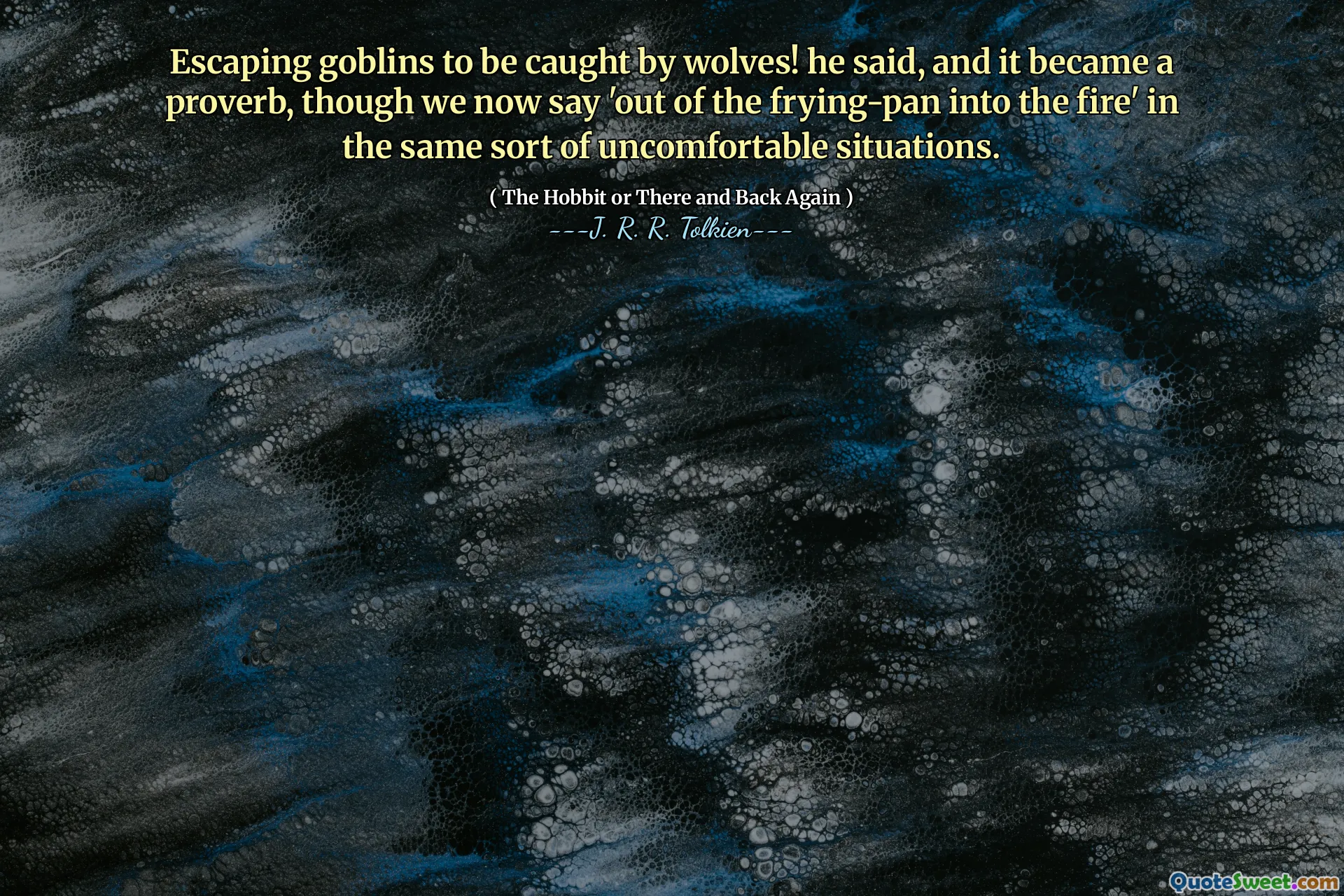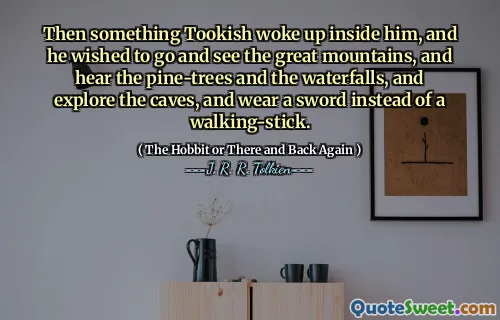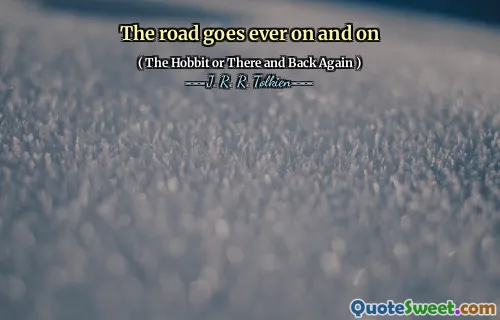
Escaping goblins to be caught by wolves! he said, and it became a proverb, though we now say 'out of the frying-pan into the fire' in the same sort of uncomfortable situations.
This quote vividly encapsulates the essence of choosing between two undesirable options, both fraught with danger and discomfort. It reflects the timeless human experience of navigating predicaments where each solution seems to lead from one peril to another. The original imagery of escaping goblins only to be caught by wolves serves as a powerful metaphor for how efforts to escape a difficult situation can sometimes unintentionally lead to even worse circumstances. Over time, such scenarios have been distilled into common idioms like 'out of the frying-pan into the fire,' which highlights the dilemma of attempting to escape one problem only to become entangled in an even more pressing or dangerous one. This evolution of language underscores a universal truth: human beings are often caught in a cycle of trying to mitigate discomfort without addressing the root cause, frequently leading to compounded difficulties. The quote also reveals a cultural tendency to use vivid imagery—like goblins and wolves—to communicate complex ideas about risk, virtue, and survival. The phrase serves as a reminder that comfort and safety are often elusive, and strategic thinking must consider the potential consequences of our choices. Recognizing this pattern encourages prudence and foresight in decision-making, rather than impulsivity driven by fear of immediate danger. Overall, the quote offers a timeless reflection on the nature of predicament and the importance of wisdom when confronting life's inevitable conflicts and challenges.











